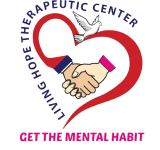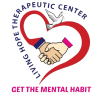Psychoeducation is an important component in the comprehensive treatment of addiction. Here’s an overview of how we use psychoeducation as a treatment option for addiction:
1- Understanding the Nature of Addiction:
We use Psychoeducation to help individuals and their families understand the neurobiological, psychological, and social factors that contribute to the development and maintenance of addiction.
This knowledge can reduce stigma, increase empathy, and foster a better understanding of the complexities of addiction.
2- Educating about the Recovery Process:
We use Psychoeducation to provide individuals struggling with addiction with information about the stages of recovery, common challenges, and effective coping strategies.
This knowledge can help set realistic expectations, increase motivation, and prepare individuals for the ups and downs of the recovery journey.
3- Addressing Co-Occurring Disorders:
We use Psychoeducation to help individuals struggling with addiction and their families understand the relationship between addiction and co-occurring mental health conditions, such as depression, anxiety, or trauma.
This knowledge can facilitate the integration of treatment approaches and improve overall outcomes.
4- Developing Relapse Prevention Skills:
With Psychoeducation,we teach these individuals about the warning signs of relapse and the importance of developing a comprehensive relapse prevention plan.
This includes identifying high-risk situations, practicing coping strategies, and engaging in ongoing support systems.
5- Fostering Family Involvement:
Psychoeducation can involve the individual’s family members or significant others, providing them with information about addiction and its impact on relationships.
This can improve family understanding, enhance communication, and facilitate the involvement of family members in the recovery process. It also can challenge family members to seek for therapy because they took realise they be sick.
6- Promoting Healthy Lifestyle Changes:
During psychoeducation,we emphasize the importance of adopting a healthy lifestyle, including proper nutrition, exercise, stress management, and sleep hygiene, as part of the recovery process.
Research has consistently demonstrated the benefits of incorporating psychoeducation into addiction treatment. It can improve treatment engagement, increase adherence to the recovery plan, and enhance the overall effectiveness of the treatment approach. By empowering individuals with knowledge and skills, psychoeducation can contribute to more sustainable and successful recovery outcomes.





